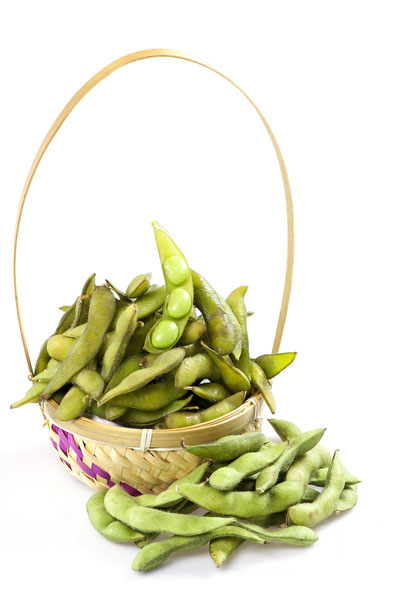Some say soy increases your risk of cancer, while others say soy can lower your risk for chronic disease.
Can one serving of soy a day keep the doctor away? Over the past 10 years, people have been talking a lot about soy and how it affects your health.
Is Soy Good For You?
Some say soy increases your risk of cancer, while others say soy can lower your risk for chronic diseases, such as diabetes.
So who should you believe? Check out the research and decide for yourself.
About Soy
- It is one of the few plant foods that has enough of the protein building blocks we all need for good health.
- It has very little saturated fat and no cholesterol.
- It can be a healthy change from animal proteins such as beef, pork or eggs. These animal proteins can be high in fat.
- It has lots of good fats, like polyunsaturated fats and omega-3 fatty acids.
There has been a lot of argument about soy because it contains plant hormones called “phytoestrogens,” or plant estrogens. It is not clear whether or not phytoestrogens can lead to hormone-related cancers.
Soy And Cancer Research
Scientists used to think that the phytoestrogens from soy could lead to an increased risk of tumor growth. But these tumor findings were only done using animals like rats and mice. Advanced studies show that rats and mice digest phytoestrogens differently from people. Other studies have shown that soy phytoestrogens can actually help prevent cancer.
Researchers also looked at people with lung cancer. They found that people who eat more soy foods lived longer than those who ate very little soy.
Based on these findings and others, the American Cancer Society says that soy is safe, even for people who have had estrogen-related cancers like breast cancer.
how much soy should i eat each day?
One serving of soy gives you about 7 to 15 g of protein. The research says that adults should eat between two and four servings, or about 25 g, of soy foods each day.
Soy And Heart Health
Soy can lower your risk of heart disease and help lower your cholesterol. If you replace some high-fat animal proteins with low-fat soy proteins, you may be able to lower your blood lipids and, therefore, lower your risk of heart disease.
The American Heart Association suggests that eating between 25 and 50 grams of soy protein each day is safe and can help reduce your LDL, or “bad” cholesterol, by up to 8 percent.
The Verdict…
Whole soy foods are safe to eat for everyone as part of a healthy lifestyle. They help lower your risk of heart disease and cancer. So go ahead and replace the meat in your stir fry with some soy beans for a healthy twist. It’s sure to please your taste buds and your heart.
5
tips to add soy to your diet
1
Stick to whole soy foods, such as soybeans, soy nuts, tofu or tempeh. Fermented soy foods such as miso can be high in sodium. More processed soy foods, like nuggets or soy patties, may have a lot of added sodium and sugar.
2
Drink one cup of soy milk with meals, in a smoothie, or on cereal for about 7 g of protein and less than 5 g of fat.
3
Eat a half-cup of soybeans, also known as edamame, alone or as part of salads, soups or stir-fry dishes.
4
One-quarter cup of soy nuts provides you with 15 g of protein and only 10 g of fat. This is about half the fat of one serving of peanuts or cashews.
5
Use tofu to replace meat in recipes. Stir-fry and grill tofu, or dice and add it to stews, soups or lasagna.

